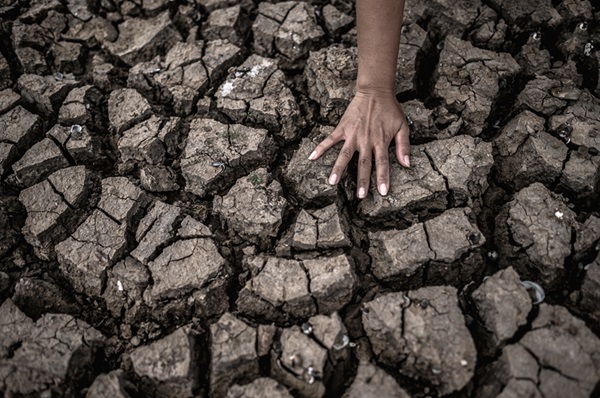Climate change poses significant health risks, impacting both the environment and public well-being. Rising temperatures lead to increased incidences of heat-related illnesses, respiratory and cardiovascular issues, and the spread of vector-borne diseases. Indirect effects include threats to food and water security, mental health challenges, and socioeconomic disparities. Addressing these health implications of climate change requires comprehensive adaptation and mitigation strategies, integrating public health interventions, community-based approaches, and personal actions. Understanding and responding to these impacts is crucial for safeguarding global health in the face of a changing climate.

I. Introduction
A. Overview of Climate Change
Climate change refers to long-term alterations in temperature, precipitation, and other atmospheric conditions. Driven primarily by human activities such as burning fossil fuels and deforestation, climate change is causing a rise in global temperatures and altering weather patterns. This phenomenon is increasingly recognized as one of the most pressing global issues, with far-reaching consequences beyond environmental concerns.
B. Importance of Understanding Health Implications
The health implications of climate change are profound and multifaceted. As global temperatures rise, the direct and indirect effects on public health become increasingly evident. Understanding these implications is crucial for developing effective strategies to protect and improve human health in the face of climate change.
C. Objectives of the Article
This article aims to explore the health implications of climate change by identifying key health risks, discussing potential solutions, and highlighting adaptation strategies. By examining both direct and indirect health impacts, we can better appreciate the urgency of addressing climate change from a health perspective.
II. Direct Health Impacts of Climate Change
A. Heat-Related Illnesses
One of the most immediate health implications of climate change is the increase in heat-related illnesses. Rising temperatures lead to more frequent and severe heatwaves, which can cause heatstroke, dehydration, and exacerbation of pre-existing health conditions. Vulnerable populations, including the elderly and children, are particularly at risk. The increased incidence of heat-related illnesses underscores the need for targeted public health interventions and adaptation measures.
B. Respiratory and Cardiovascular Issues
Climate change exacerbates air pollution, contributing to respiratory and cardiovascular problems. Poor air quality from increased levels of pollutants such as ground-level ozone and particulate matter can aggravate asthma, chronic obstructive pulmonary disease (COPD), and heart disease. The health implications of climate change extend to worsening air quality, which necessitates enhanced monitoring and mitigation efforts to protect respiratory and cardiovascular health.
C. Vector-Borne Diseases
Shifts in climate patterns affect the distribution and behavior of disease vectors, such as mosquitoes and ticks. Warmer temperatures and altered precipitation patterns expand the range of vectors, increasing the risk of diseases like malaria, dengue fever, and Lyme disease. Understanding the health implications of climate change on vector-borne diseases is critical for developing effective surveillance and control measures.
III. Indirect Health Impacts of Climate Change
A. Food and Water Security
Climate change impacts food production and water resources, leading to concerns about food security and water safety. Extreme weather events, such as droughts and floods, can disrupt food supply chains and lead to contaminated water sources, heightening the risk of foodborne illnesses. Addressing these health implications requires integrated strategies to ensure sustainable food and water systems.
B. Mental Health Effects
The psychological impact of climate change is significant, with increasing stress, anxiety, and depression linked to climate-related disasters and environmental changes. Displacement and loss of property due to extreme weather events contribute to mental health issues, highlighting the need for mental health support as part of climate adaptation strategies.
C. Socioeconomic Impacts
Climate change affects socioeconomic conditions, disrupting health services and infrastructure. The economic strain caused by climate-related damages can exacerbate health disparities and affect health equity. Addressing the health implications of climate change involves understanding the interplay between socioeconomic factors and health outcomes.
IV. Vulnerable Populations and Disparities
A. Impact on Low-Income and Marginalized Communities
Low-income and marginalized communities often face greater exposure to climate risks and have fewer resources to adapt. These populations are disproportionately affected by climate-related health issues, exacerbating existing health disparities. Addressing these disparities is essential for equitable climate adaptation and health protection.
B. Effects on Indigenous Communities
Indigenous communities are particularly vulnerable to climate change due to their close ties to the environment and traditional lifestyles. Changes in the environment impact their health practices and increase their susceptibility to climate-related health issues. Supporting indigenous communities through climate adaptation strategies is crucial for preserving their health and cultural practices.

V. Adaptation and Mitigation Strategies
A. Public Health Interventions
Developing early warning systems for heatwaves and disease outbreaks is essential for mitigating health risks. Enhancing air quality through pollution control measures can reduce respiratory and cardiovascular issues. Public health interventions play a critical role in addressing the direct and indirect health implications of climate change.
B. Community and Policy-Based Approaches
Implementing climate-resilient infrastructure and housing helps communities adapt to climate impacts. Advocating for climate policies that integrate health considerations can drive systemic changes necessary for effective adaptation. Policy-based approaches are vital for addressing the broader health implications of climate change.
C. Personal and Local Actions
Educating and preparing communities for climate-related health risks can enhance resilience. Promoting sustainable practices, such as reducing carbon footprints, contributes to mitigating climate change and its health impacts. Personal and local actions are important components of a comprehensive response to the health implications of climate change.
VI. Case Studies and Examples
A. Real-world examples of Health Impacts
Examining case studies of climate-related health issues in various regions provides insights into the real-world impacts of climate change. Analysis of responses and outcomes from these cases helps identify effective strategies for addressing health implications.
B. Successful Adaptation and Mitigation Efforts
Examples of successful adaptation and mitigation efforts demonstrate the effectiveness of various strategies in addressing climate-related health issues. Lessons learned from global and local initiatives can inform future efforts to protect health in the context of climate change.
VII. Future Outlook and Research Directions
A. Emerging Health Risks and Trends
Anticipated future impacts of climate change on health include new and evolving risks. Research priorities should focus on understanding these emerging risks and developing innovative solutions to address them.
B. Advancements in Climate and Health Science
Advancements in climate prediction and health surveillance technologies offer opportunities for better protection against climate-related health issues. Exploring potential solutions and technologies can enhance our ability to manage health risks associated with climate change.
VIII. Conclusion
A. Summary of Health Implications of Climate Change
Recapping the direct and indirect health effects of climate change underscores the importance of addressing these issues. Effective strategies and interventions are crucial for managing the health implications of climate change.
B. Final Recommendations
Adopting integrated climate and health strategies is essential for mitigating the health impacts of climate change. Continued awareness and action are necessary to protect and improve public health in a changing climate.
C. Call to Action
Motivating readers to support climate action and health advocacy is critical for driving positive change. Further resources and professional consultation can provide additional support for addressing the health implications of climate change.

